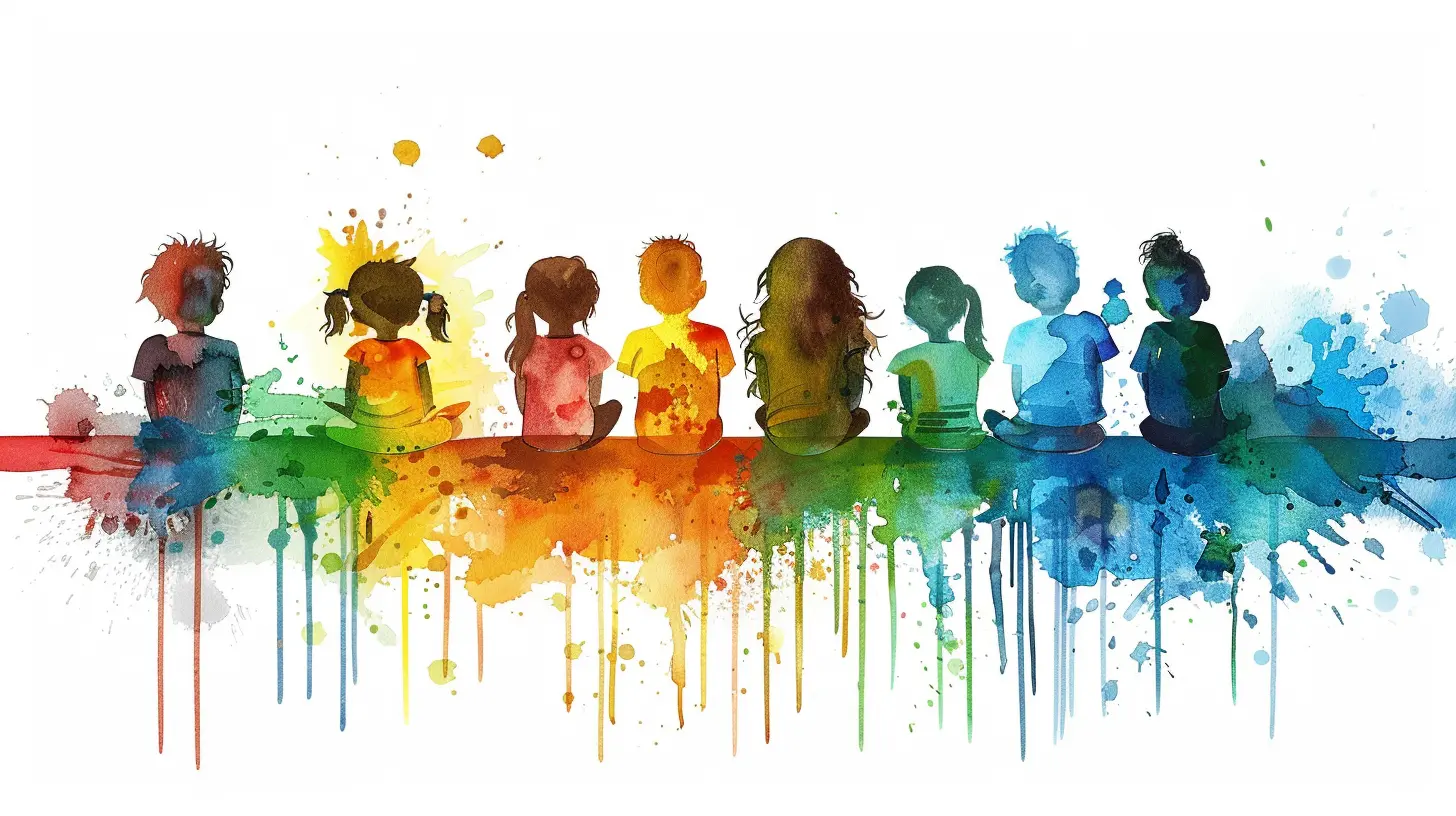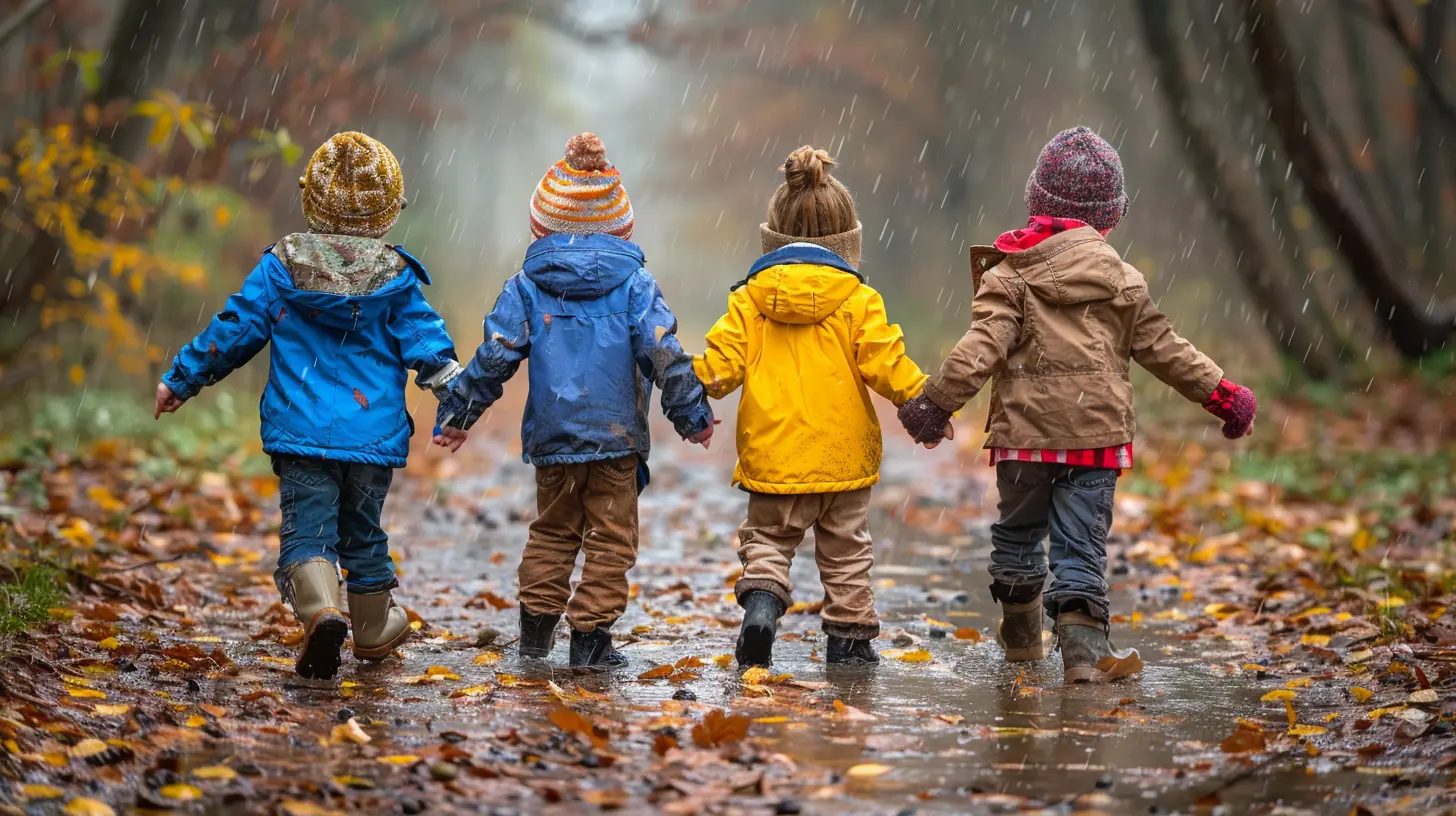Preparing Your Child for Group Work and Team Activities
12 July 2025
We all want our kids to thrive—whether that’s academically, socially, or emotionally. And as they grow, one skill that becomes more and more important is working with others. Yep, we’re talking about group work and team activities. From classroom projects to sports teams and even school clubs, being able to collaborate, share ideas, solve problems, and support one another is key.
But let’s face it: group work isn’t always easy… not even for adults. Some kids may shy away from it, while others may try to dominate. So, what’s the secret to helping your child not only survive group projects—but shine in them?
Let’s break it down.
Why Group Work Matters in the Long Run
Before diving into how to prep your child, let’s talk about the “why.” Why does group work matter so much?Well, children aren't just learning about fractions and the periodic table in school. They're also learning how to communicate, compromise, and collaborate. These are the soft skills that stick with them well into adulthood.
Team activities teach:
- Empathy – understanding other perspectives
- Communication – expressing ideas clearly and actively listening
- Problem-solving – figuring out how to move forward together
- Leadership and responsibility
Think about your own life: how often have you had to work in a team or rely on someone else to achieve a common goal? Exactly. So, helping your child build these skills early on sets them up for long-term success.
Common Challenges Kids Face in Group Settings
Before you can help your child succeed in team environments, it’s important to understand what might be holding them back. Every child is different, but here are a few common hurdles:- Shyness or social anxiety – Some kids find it hard to speak up.
- Perfectionism – Others may want things done their way and struggle to delegate.
- Lack of confidence – They may doubt their ability to contribute anything valuable.
- Previous bad experiences – Maybe a group project didn’t go so well and that memory's stuck.
Sound familiar? Don’t worry. These challenges are normal and 100% manageable.
How to Prepare Your Child for Group Work and Team Activities
Let’s get into the good stuff—the practical steps you can start taking at home today.1. Talk About Group Work Positively
Kids pick up on our attitudes more than we realize. If every time your child mentions a group activity, your response is an eye roll or a joke about how “group projects are the worst,” they’ll internalize that.Instead, talk about the advantages:
- “You get to learn from other people.”
- “It feels great when a team accomplishes something together.”
- “You don’t have to do all the work yourself—it’s a shared effort.”
Help them see group work as an opportunity, not a punishment.
2. Role-Play Different Scenarios
Want your child to learn how to handle group dynamics? Practice makes perfect. Try some role-playing at home. Pretend you’re classmates working on a project. Throw in a few curveballs, like:- Someone not pulling their weight
- Two people wanting different ideas
- Needing to assign tasks fairly
Then talk through solutions together. Ask, “What could we say to make this better?” This builds confidence ahead of the real thing.
3. Teach Active Listening Skills
Listening is half the battle in group work. Often, kids are so eager to speak—or so nervous—that they don’t really hear others.Teach them to:
- Wait their turn
- Look at the person speaking
- Nod or give small cues they’re paying attention
- Repeat back what they heard to make sure they understood
These skills may seem small, but they go a long way in showing respect and building trust.
4. Help Them Find Their Strengths
Everyone brings something unique to the table. Help your child identify what they’re good at in group settings. Are they a natural planner? Do they stay calm under pressure? Are they great at drawing or designing?When kids know their strengths, they’re more willing to speak up and contribute. They also learn to appreciate that others bring different strengths, too.
5. Encourage Responsibility Without Micromanaging
One big part of working in a team is being responsible for your part of the task. Encourage your child to follow through on their commitments. If they’ve been assigned the task of making poster visuals or researching a topic, let them take the lead.But here’s the kicker: resist the urge to hover.
That means resisting things like rewriting their slides at 10 p.m. or emailing the teacher for “clarification.” These actions show your child you don’t trust them to handle it—and unintentionally teach dependence.
Instead, be available as support if they ask, but let them steer the ship.
6. Talk About Conflict and Compromise
Yep, conflict in group work is pretty normal. Rather than avoiding it, teach your child how to deal with it calmly. Discuss:- How to disagree respectfully (“I see your point, but what if we tried this idea instead?”)
- The importance of compromise
- When to stand up for yourself vs. when to go with the flow
This kind of emotional coaching can make a huge difference when tensions rise in a group project or team sport.
7. Encourage Extracurricular Involvement
Want to build team skills without the academic pressure? Sign your child up for something they enjoy that involves teamwork—like drama club, a robotics team, scouts, or a community service group.These experiences are golden. They allow your child to build cooperative skills in a more relaxed setting. Plus, they might even make some new friends while they’re at it.
8. Celebrate Team Wins (and Losses)
Whether it’s a science fair trophy or just surviving a chaotic group assignment without a meltdown—celebrate it. Let your child know you’re proud of their effort, not just the outcome.At the same time, use those less-than-perfect team experiences as learning moments. Ask questions like:
- “What went well in the group?”
- “What would you do differently next time?”
- “Did you feel heard? Why or why not?”
Encourage reflection without judgment.
Helping Specific Personality Types
Let’s be real: one approach doesn’t work for every kid. Below are a few ways to adapt based on your child’s personality.For the Shy or Introverted Child
- Encourage smaller team activities first- Help them prepare what they want to say beforehand
- Remind them that speaking up once is a win
For the Natural Leader (or the Bossy One)
- Teach them the difference between leading and controlling- Help them practice asking for others' opinions
- Highlight the power of delegation
For the Overthinker or Perfectionist
- Remind them that group work isn’t about perfection—it’s about teamwork- Teach them to let go of control and trust others
- Celebrate progress over perfection
Teaching Empathy and Perspective-Taking
Here’s a secret weapon for group success: empathy.Kids who consider others’ feelings and viewpoints tend to be better team players. So how do you teach this?
- Read books about teamwork or friendship and discuss the characters’ choices.
- Talk about your own work experiences and what you’ve learned from working with others.
- Ask your child to “step into someone else’s shoes” during group work stories.
It’s like giving them a pair of magic glasses that let them see the world from different angles.
Final Thoughts
Preparing your child for group work and team activities isn’t about turning them into the most popular kid or the loudest voice in the room. It’s about helping them grow into someone who listens, contributes, and collaborates with confidence.It takes time, patience, and practice. But believe me, the payoff is worth it. Because when a child learns how to work well with others, they don’t just succeed in school—they thrive in life.
So next time your child mentions a group project, take a deep breath, give them a high five, and say, “You’ve got this!
all images in this post were generated using AI tools
Category:
School ReadinessAuthor:

Noah Sawyer
Discussion
rate this article
2 comments
Geneva Vasquez
This article effectively highlights the importance of collaboration skills in children's development. However, integrating specific strategies and examples could enhance parents' ability to support their child's teamwork journey.
November 21, 2025 at 5:41 PM

Noah Sawyer
Thank you for your feedback! I appreciate your suggestion and will consider incorporating specific strategies and examples in future articles to better support parents.
Kai McKittrick
Empower your child with confidence; teamwork skills blossom with guidance and practice!
July 23, 2025 at 2:43 AM

Noah Sawyer
Thank you for your insightful comment! Building confidence and teamwork skills is essential for children’s success in group activities. Your emphasis on guidance and practice is spot on!


